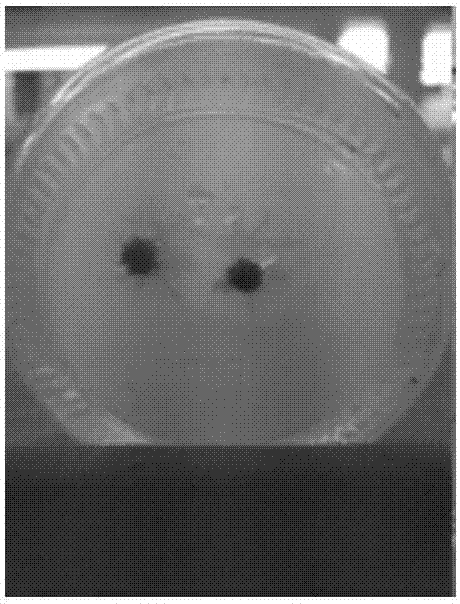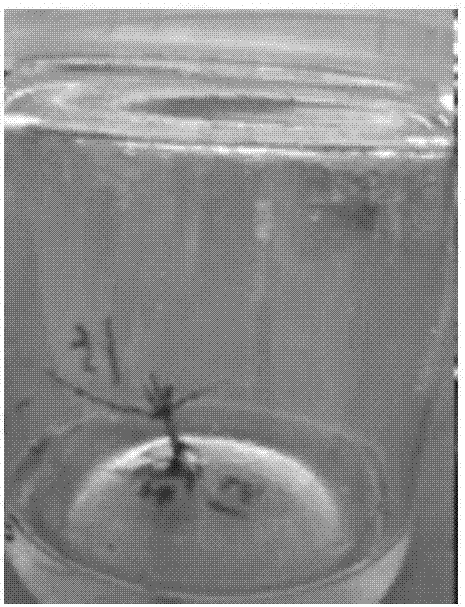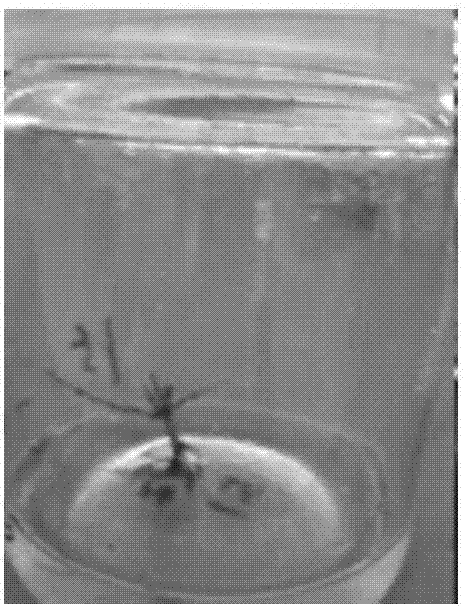Tissue Culture Rooting Method of Tamarix jinta
A tissue culture and tamarisk technology, which is applied in horticultural methods, botanical equipment and methods, plant regeneration and other directions, can solve the problems of natural regeneration limitation of urn, difficult to preserve cuttings, low cutting survival rate, etc. Good growth and fast rooting effect
- Summary
- Abstract
- Description
- Claims
- Application Information
AI Technical Summary
Problems solved by technology
Method used
Image
Examples
Embodiment Construction
[0043] The present invention will be specifically introduced below in conjunction with the accompanying drawings and specific embodiments.
[0044] 1. Selection of explants
[0045] Selection of suitable explants is a basic step in tissue culture.
[0046] The present invention selects young shoots of Tamarix urchina in the same year as explants for rooting culture, and cuts explants of different forest ages in the afternoon in fine weather.
[0047] 2. Cleaning of explants
[0048] 1. Preliminary flushing
[0049] Indoors, the collected explants were first cut into small sections with a length of 10-15 cm, and then the sediment on the surface was washed with tap water.
[0050] 2. Deep cleaning
[0051] First wash the branches with washing powder, rinse the washing powder foam, and then use a glass rod to dip a drop of Tween 80 for deep cleaning, and then rinse the explants under running water for 2-6 hours.
[0052] 3. Sterilization and cutting of explants
[0053] 1. ...
PUM
 Login to View More
Login to View More Abstract
Description
Claims
Application Information
 Login to View More
Login to View More - R&D
- Intellectual Property
- Life Sciences
- Materials
- Tech Scout
- Unparalleled Data Quality
- Higher Quality Content
- 60% Fewer Hallucinations
Browse by: Latest US Patents, China's latest patents, Technical Efficacy Thesaurus, Application Domain, Technology Topic, Popular Technical Reports.
© 2025 PatSnap. All rights reserved.Legal|Privacy policy|Modern Slavery Act Transparency Statement|Sitemap|About US| Contact US: help@patsnap.com



